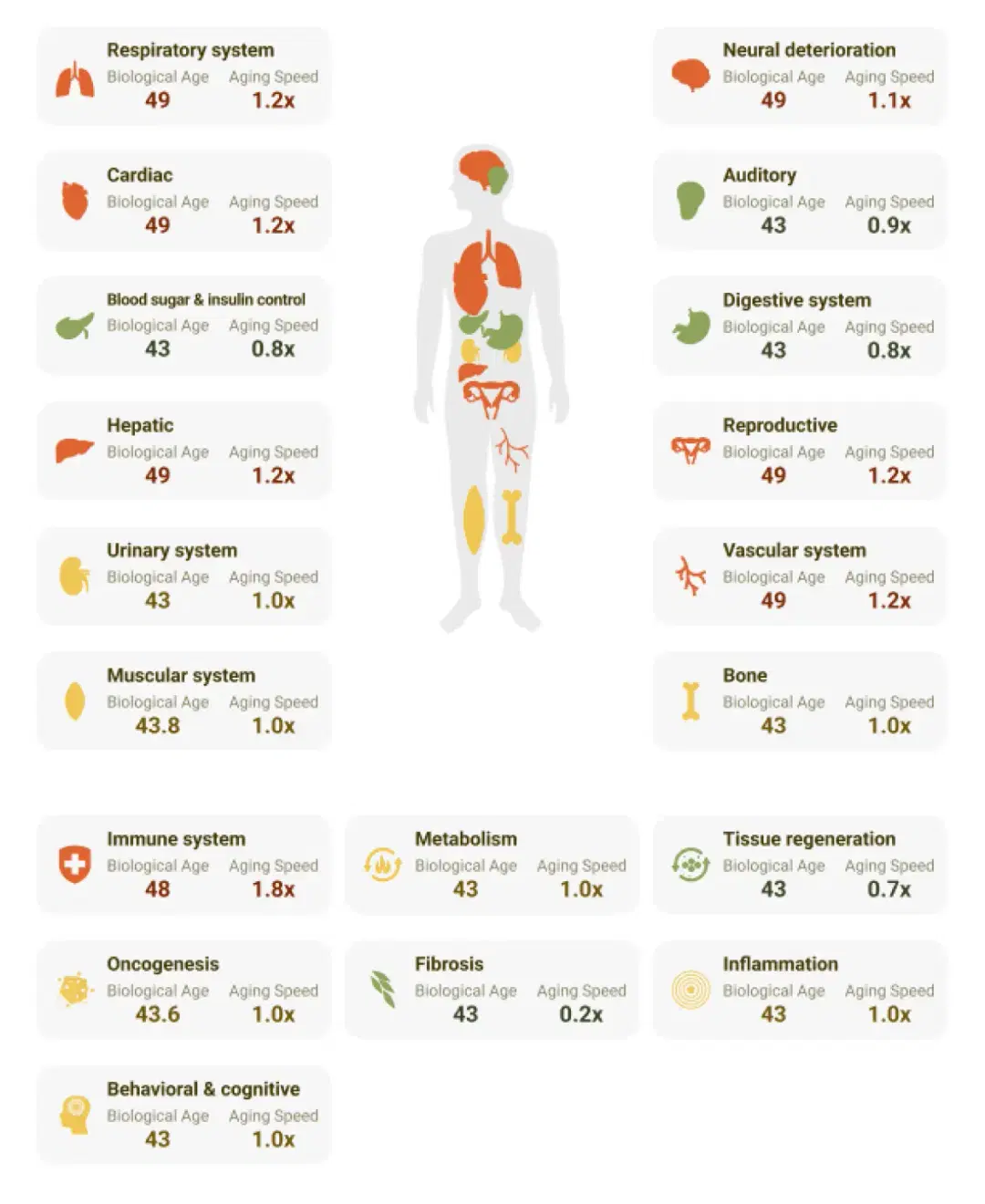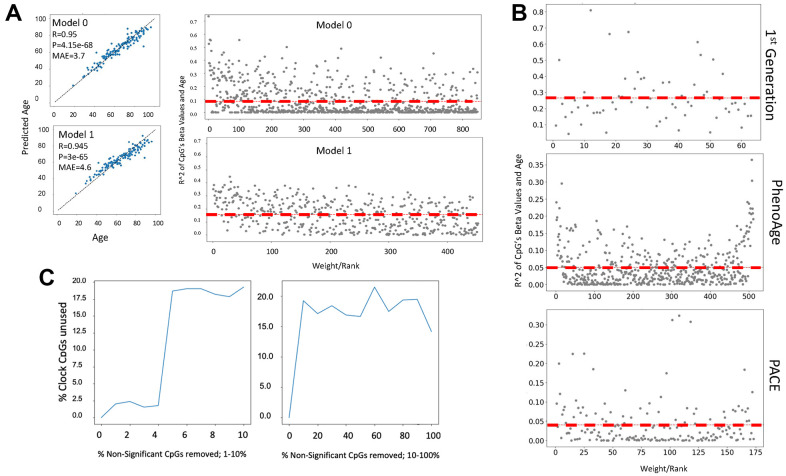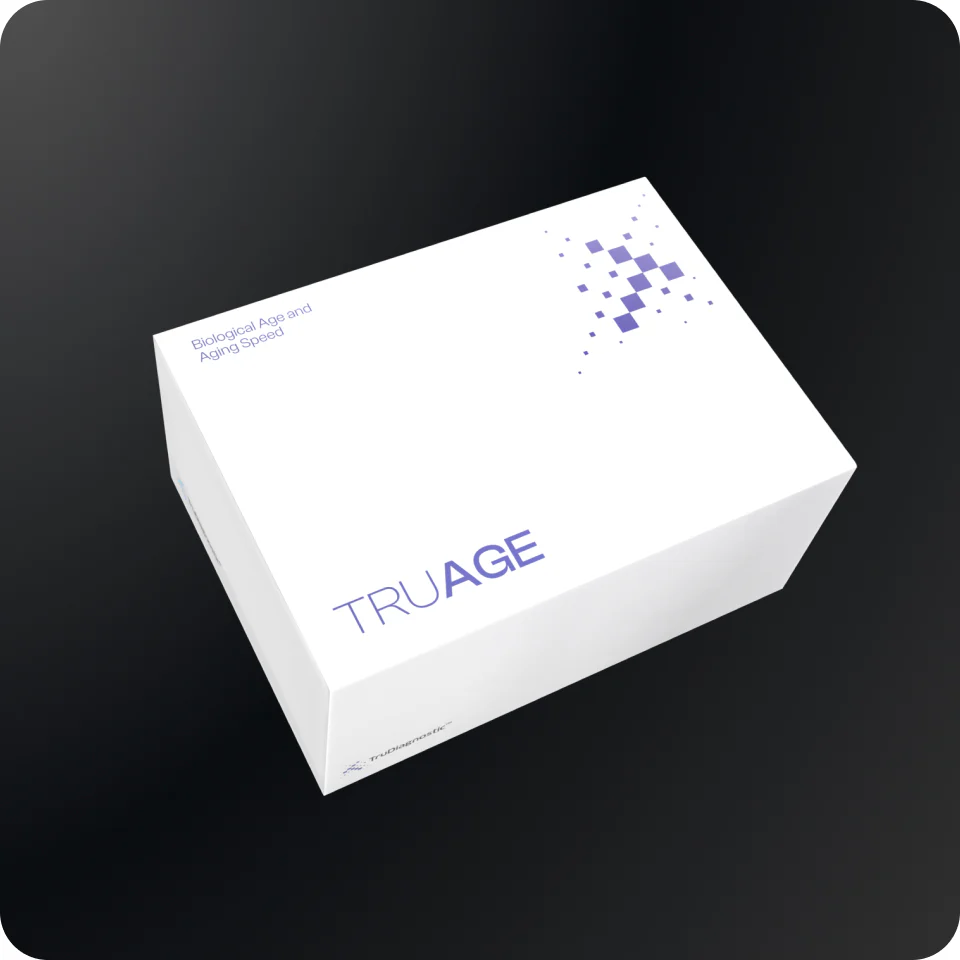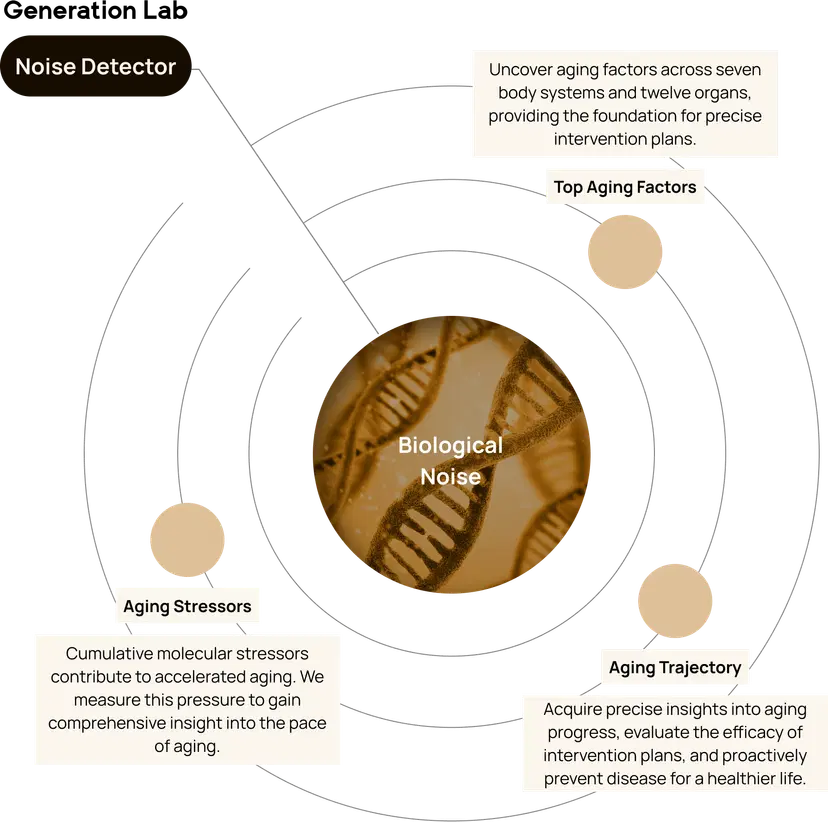SystemAge vs. TruDiagnostic: Comprehensive Comparison of Top Biological Age Tests
Now that the science of longevity is shifting from lab benches to living rooms, the frontier of biological age testing is emerging. Early adopters in the longevity movement and health optimizers are no longer questioning if they should measure how fast they're aging. Instead, they want to know how.
Two of the most science-backed players in this space are SystemAge, developed by Generation Lab, and TruDiagnostic, the team behind the TruAge and TruHealth testing kits. Both claim to deliver groundbreaking insights into your aging trajectory, but they differ sharply in science and real-world application.
So, which is the best biological age test? Let’s find out in this SystemAge vs TruDiagnostic review.
Introduction to Biological Age Testing
Biological age testing is an innovative approach that measures how old your body truly is at the cellular and molecular levels, rather than simply counting the years since your birth. Unlike chronological age, which is fixed, biological age reflects the cumulative effects of genetics, lifestyle, environment, and health status on your body’s systems.
DNA methylation analysis and epigenetic age tests are used to get a picture of your overall aging process. The insights can help identify areas of accelerated aging and guide targeted interventions for healthier longevity.
Comparative Analysis: SystemAge vs. TruDiagnostic
Below, we offer a TruDiagnostic and SystemAge review in several aspects, from the science behind them to their extent of personalization.
The Science
SystemAge spawned from 20+ years of cutting-edge aging research led by UC Berkeley bioengineering professor Dr. Irina Conboy. As a pioneer in plasma-based rejuvenation, Dr. Conboy believes that aging is biological, not chronological, and can be slowed or even reversed through targeted interventions.
SystemAge boasts clinical-grade accuracy in measuring biological age through DNA methylation, a process powered by Illumina technology, which analyzes the chemical modifications on DNA that change with age. The system is backed by over 14,000 citations and multiple peer-reviewed clinical validations.
Its biggest differentiator is that it tracks aging and the pace of aging across 19 distinct organ systems individually - from the brain and cardiac system to inflammation, metabolism, and beyond.

On the other hand, TruDiagnostic has built a strong reputation through collaborations with Harvard, Yale, and Duke. The company has developed over 1,670 epigenetic biomarkers for diagnostics. Its core algorithms include:
- OMICmAge for overall biological age
- SYMPHONYAge for 11 organ systems
- DunedinPACE for the rate of aging
- Additional insights like telomere length, immune health, cancer risk, etc
While both brands offer longevity diagnostics, SystemAge outpaces TruDiagnostic in granularity since it offers 19 organ-specific aging clocks compared to TruDiagnostic's 11.
Recent research has also raised important questions about the scientific foundation behind some of TruDiagnostic's core methods. At its core, TruDiagnostic's clock uses linear regression to fit methylation data to chronological age — a basic statistical approach that treats each CpG site as contributing independently and proportionally to the final number. This fundamentally misrepresents how biological aging works: aging involves nonlinear cascades of epigenetic drift, immune decline, and metabolic disruption that interact in ways a straight-line model cannot capture. A 2023 peer-reviewed study on the cover of Aging reinforced these concerns, finding that Elastic Net-based methylation clocks, which TruDiagnostic relies on, suffer from low predictive accuracy among individuals of the same age.

The study also showed that the selection of methylation sites within these clocks shifts unpredictably when non-clock cytosines are removed from training data, undermining their reliability as consistent biological health markers. Without prospective validation tying the clock's output to hard clinical endpoints — disease onset, functional decline, or mortality — the "biological age" it reports remains a statistical construct rather than a proven health indicator.
In short, these clocks optimize for machine learning outcomes, not biological validity. These findings highlight a major difference between conventional clocks and SystemAge's "noise barometer" approach, which uniquely measures aging and emphasizes stability and biological relevance over mathematical prediction alone.
Real-World Usage
SystemAge is used by 375+ clinics, which use the test as the basis of longevity treatments and measurement efficacy for therapies and interventions. Clinicians use SystemAge to detect early risk signals before symptoms arise, personalize treatments (e.g., NAD+, stem cells, plasma exchange), and track the efficacy of these therapies.
In one case, patients undergoing plasma therapy showed a biological age reduction of over 10 years in the immune system alone. Building on its foundation as the gold standard of measurement for science and longevity experts, SystemAge is now expanding into new markets - consumers, gyms, corporate wellness programs, etc.
TruDiagnostic is a consumer-first brand with a wide product range. Its TruAge test focuses on biological aging metrics, while TruHealth analyzes nutritional, metabolic, and toxin-related biomarkers.
TruDiagnostic is a consumer-first brand with a wide product range. Its TruAge test focuses on biological aging metrics, while TruHealth analyzes nutritional, metabolic, and toxin-related biomarkers.
It offers data, especially for those seeking lifestyle and diet insights alongside aging metrics. The at-home convenience and broad biomarker coverage make it accessible, though not always clinically actionable.

Personalization and Actionability
SystemAge doesn't stop at telling you how fast you are aging, t helps you understand why you're aging the way you are and what to do about it.
Each organ-specific result comes with tailored recommendations, allowing you (and your physician) to personalize interventions and retest over time to measure progress. As a result, longevity transforms into a data-driven journey to stop the age clock.
Meanwhile, TruDiagnostic offers general recommendations and reports like "smoking impact score," "cancer risk," and "type 2 diabetes risk," alongside nutrient data. It's useful for broader wellness insights but lacks the same clinical-grade actionability when it comes to reversing biological age per organ system.
Design Philosophy
When it comes to SystemAge vs TruDiagnostic design philosophy, you will see a major difference in their positioning.
SystemAge positions itself as your biological "operating system report." It's built for high performers, clinic directors, and serious biohackers who want hard numbers and trackable outcomes.
It's sort of like the Oura Ring of biological age testing: specific, science-first, and mission-driven.

TruDiagnostic, by contrast, caters more to the wellness generalist. These may be people interested in nutrition and general lifestyle optimization. Its wide net of biomarkers gives users a snapshot of health trends, but the depth of longevity-specific insights can vary. So, if you're looking for a revolutionary shift in aging control, SystemAge does the job better.
User Outcomes
The core emotional driver behind SystemAge is power and control. When you see your cardiac system aging twice as fast as your skin or brain, you no longer feel trapped in vague anti-aging marketing. You know what to fix, and you can track whether your plan is working.
The mechanism has triggered users to say, "I need to know my 19 numbers" moment for users. Clinics report better retention and revenue from retesting cycles, and early users consistently report lower dropout rates and improved lifestyle adherence.
In contrast, TruDiagnostic provides its users with a sense of discovery. It helps them understand how their lifestyle affects various health markers. But its messaging leans more into prevention and awareness than deep longevity reversal.
SystemAge vs TruDiagnostic: Pros and Cons
Let's take a closer look at the pros and cons of both longevity testing solutions.
SystemAge Pros and Cons
Pros
- Measures 19 organ systems for detailed longevity insight
- Clinically proven to reverse biological age (e.g., stem cells, plasma exchange)
- Used in over 150 longevity clinics
- clinical-grade accuracy with peer-reviewed validation
- Provides personalized, organ-specific interventions
- High retention and measurable outcomes over time
Cons
- Newer to the direct-to-consumer market
- Focused on aging metrics than on lifestyle markers like toxins or vitamins
TruDiagnostic Pros and Cons
Pros
- Broad biomarker testing
- Offers tests tailored for lifestyle, nutrition, and aging
- Strong at-home test experience with wide accessibility
Cons
- Tracks 11 organ systems
- Less clinically actionable for reversing aging per organ
- General recommendations, less specific to interventions
Conclusions
If you're a longevity diagnostics clinic, a biohacker, or a high-performance individual serious about reversing the clock organ by organ, SystemAge is the best biological age test for your needs. It can become the next-generation dashboard for your body's operating system.
However, if you're new to the space or are interested in exploring a wider wellness picture, including nutritional gaps or exposure to toxins, TruDiagnostic offers a solid entry point into epigenetic health.
But if you want to measure and reverse aging with precision and confidence, then it's time to ask: What are your 19 numbers?
Ready to take control of your biological age? Share this article, leave a comment, or explore related content to learn more about reversing the clock.

